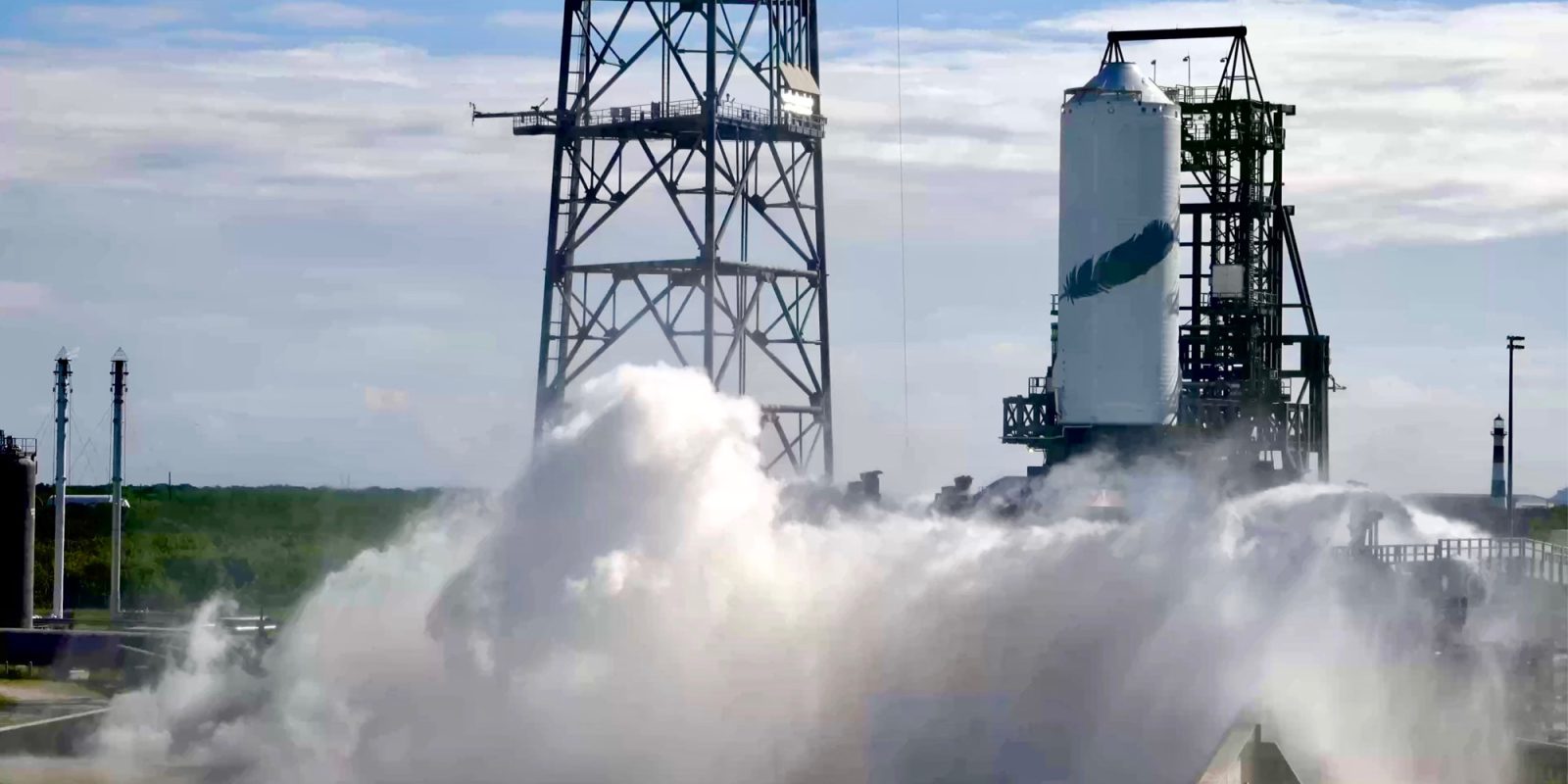
This week, Blue Origin made another step in the right direction in getting its New Glenn rocket to the pad for launch. On Thursday, the company fueled up its New Glenn second stage and conducted a 15-second risk reduction static fire.
NG-1, or New Glenn-1, will be Blue Origin’s first launch of its New Glenn rocket. Originally, it was intended to be NASA’s ESCAPADE mission, a duo of cubesats built by Rocket Lab to travel out to Mars. NASA delayed the mission due to uncertainty in Blue Origin’s ability to get New Glenn ready to launch by the end of its window in October.
NG-1 will now fly a tech demo of the company’s Blue Ring project, an in-orbit transfer, hosting, or rideshare platform. It’s kind of like a much larger version of Rocket Lab‘s kick stage/Photon but in one. NG-1’s new launch date is set for November, which, with Thursday’s development, makes more sense.
The static fire came roughly a week later than originally planned, not uncommon for delays in first-launch flight testing. However, this most likely validates NASA’s concerns about New Glenn not meeting the October launch window.
Blue Origin has seemingly run into several setbacks, but the company is finally making serious progress, at least now from the outside, towards getting to launch. Must be an exciting time for those Blue fans out there.
GS2, the name of Glenn’s upper stage, is powered by two BE-3U engines, a variation to the same engines powering New Shepard‘s suborbital flights. Consuming liquid oxygen and hydrogen, the company claims these have one of the highest thrust-to-weight ratios ever flown for a hydrolox engine.
Blue Origin states the test was an overall success and allowed ground teams to practice launch day procedures.
The company is now moving to finish up assembly and checkouts of the first New Glenn booster for its hot fire test. Powered by seven BE-4 methane engines, that is sure to be a sight when it’s complete.
FTC: We use income earning auto affiliate links. More.




Comments